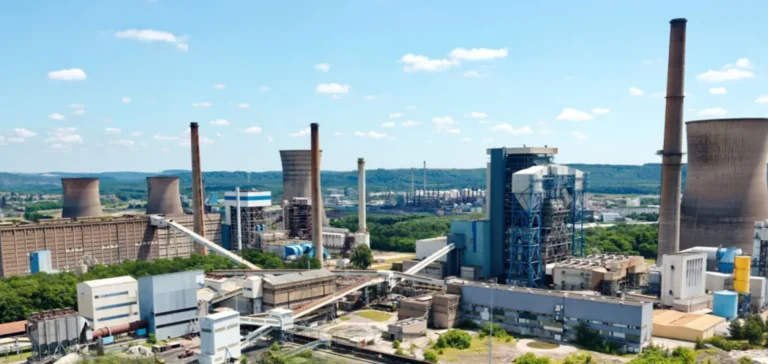French energy company GazelEnergie, a subsidiary of Czech group Energetický a průmyslový holding (EPH), announced it is in advanced talks to establish a data center at its Saint-Avold industrial site in Moselle. The project is part of a broader strategy to transform the facility, historically used for coal-fired electricity production.
A site tailored for energy-intensive data centers
GazelEnergie President Frédéric Faroche stated that the group has been negotiating with several industrial partners for over a year and is considering both solo and joint investment options. “Power plants are a privileged site for hosting this type of project,” he said during a press conference.
According to Antonin Arnoux, Director of the Saint-Avold site, existing infrastructure such as cooling systems and grid connections offers technical advantages for a large-capacity data center. Commissioning could take place as early as 2028, with a target capacity of 300 megawatts (MW).
A structuring investment for site conversion
Since 2020, GazelEnergie has invested €100mn ($107mn) in Saint-Avold. The company plans to convert the plant to gas starting in 2026, with an estimated 18-month construction period, in line with the “Saint-Avold Law” adopted in April 2025. This legislation allows continued industrial activity at the site, avoiding the previously planned 2027 closure.
The 2025/2026 winter season will be the last for coal-fired generation. Without conversion, the plant would have been forced to shut down, threatening about 500 direct and indirect jobs. The request for modification of the operating license will be submitted in the autumn.
Towards an energy hub combining data and storage
At the same time, GazelEnergie is developing an electricity storage hub on the site. The group plans to commission an initial 100 MW of capacity in 2026, aiming for 300 MW by 2028.
In the long term, the combined energy capacity of the site could reach 400 MW, integrating production, storage and data hosting. This approach reflects a long-term investment strategy focused on securing energy resources for high-intensity industrial uses.






















